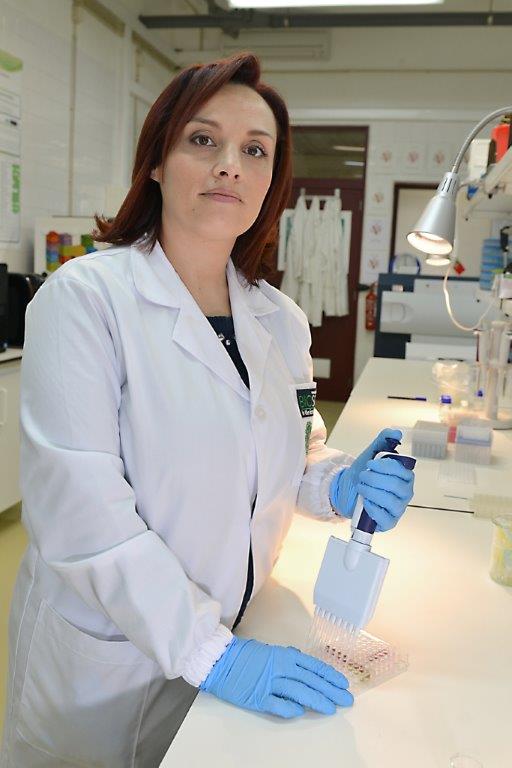L’Oréal Portugal Medals of Honor recognize three more young scientists

Elisabete Oliveira (REQUIMTE, FCT-UNL), Ana Catarina Fonseca (iMM Lisboa, FML-UL), and Ana Faria (ISPA – MARE) are the three researchers honored in the 12th edition of the “L’Oréal Portugal Medals of Honor for Women in Science,” created by L’Oréal Portugal in partnership with the National Commission for UNESCO and the Foundation for Science and Technology.
This annual award, worth €20,000, aims to promote women's participation in science by encouraging young and promising scientists at the beginning of their careers to pursue advanced studies in the fields of health sciences and environmental sciences.
The three young winners, selected from more than 70 candidates, join the group of 37 women scientists who have been supported by the L'Oréal Portugal award since its inception in 2004.
Present since the first edition, FCT continues to support the L'Óréal Portugal Medals of Honor for Women in Science, ensuring that the proposals received are evaluated by a panel of scientists of recognized merit. Ana Sanchez, member of the Board of Directors, expresses FCT's commitment to this initiative: "We are proud to be able to contribute to supporting a new generation of scientists, full of promise and potential, and thus give a boost to science in Portugal and to maintaining the place of women in science in our country. In fact, Portugal leads the European indicators on equity in R&D: of the total population of researchers, 45% are women (the European average is 33%); in top positions in scientific bodies and university administration, 30% are women; Portugal is also the third country with the highest percentage of women with qualifications above a master's degree (56%, compared to the European average of 47%).
About the three award-winning researchers:
Elisabete Oliveira (32) wants to develop a new generation of luminescent nanoparticles to be used in the discovery of new biomarkers in cancer cells and in the creation of devices for the controlled distribution and release of drugs in these cells. Her research aims to achieve a more effective but non-invasive therapy, whose action can be monitored through the luminescence of the nanoparticles, leading to controlled dosing that mitigates adverse effects and combats resistance to conventional chemotherapy.
Elisabete Oliveira holds a PhD in Biotechnology (2010) from the Faculty of Science and Technology of the New University of Lisbon. She spent two years at the University of Vigo, Spain, as a postdoctoral researcher and now has the same responsibilities in the BIOSCOPE group at UCIBIO-REQUIMTE, the institution where she obtained her PhD. She obtained FCT funding under the FCT 2014 Researcher Program. Analytical chemistry, nanotechnology, and nanoproteomics are her areas of interest.

Ana Catarina Fonseca (34) intends to study the structure of the heart in patients who have suffered strokes of various origins, including those of undetermined origin. Through comparison, she will seek to understand whether there are changes that can be used to diagnose and prevent new ischemic strokes of undetermined etiology, namely those that currently depend on a lengthy and not always possible diagnosis of atrial fibrillation.
Ana Catarina obtained her PhD in Medicine, specializing in Neurology, from the Faculty of Medicine of the University of Lisbon (2014). In the same year, she completed a Master's degree in Public Health at Harvard University (USA), after already completing two master's degrees: in Stroke Medicine at Danube University Krems, Austria, and in Neuroscience at the University of Lisbon. She is a researcher at the Institute of Molecular Medicine, a professor at the Faculty of Medicine of the University of Lisbon, and a physician at Santa Maria Hospital.

Ana Faria (34) intends to study how fish along the Portuguese coast are being affected by the increase in ocean water acidity, a consequence of risingCO2 levels. This circumstance has already proven to have harmful effects on the marine ecosystem, endangering the sustainability of marine fish, an essential resource for humanity.
Ana Faria holds a PhD in Marine Ecology from the University of Algarve (2010). She began her postdoctoral research at ISPA – University Institute, joining the MARE Research Center, where she continues to conduct research. She teaches in the Biology undergraduate program and the Marine Biology and Conservation master's program.
(Image credits:L’Oréal Portugal)